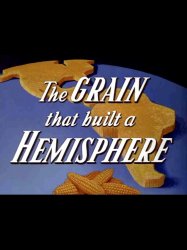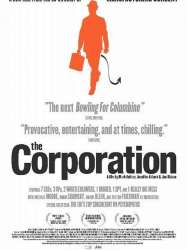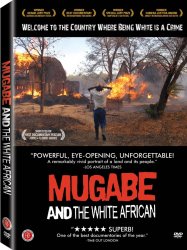Blood in the Mobile is a danois film of genre Documentary
Blood in the Mobile (2010)

If you like this film, let us know!
- Infos
- Casting
- Technical infos
- Photos
- Videos
- Film quotes
- Characters
- Music
- Awards
OriginDanemark
Genres Documentary
Themes Environmental films, Documentary films about business, Documentary films about environmental issues
Rating70%










Blood in the Mobile is a 2010 documentary film by Danish film director Frank Piasecki Poulsen. The film addresses the issue of conflict minerals by examining illegal cassiterite mining in the North-Kivu province in eastern DR Congo. In particular, it focuses on the cassiterite mine in Bisie.
The film is co-financed by Danish, German, Finnish, Hungarian and Irish television, as well as the Danish National film board.
The film premiered in Denmark on September 1, 2010. During the making of the film Frank Piasecki Poulsen is working with communications professional and new media entrepreneur Mikkel Skov Petersen on the online campaign of the same name.
The campaign is addressing Poulsen and Petersens notion of the responsibility of the manufacturers of mobile phones on the situation in war torn eastern Congo. The project is collaborating with NGOs like Dutch-based Make It Fair and British-based Global Witness who are also engaged in changing the conduct of Western companies regarding the industrial use of minerals of unknown origin.
The cassiterite dug out in the illegal mines in North-Kivu is according to Danish corporate monitor organization Danwatch primarily purchased as tin by the electronics industry after processing in East Asia.
Apart from trying to raise awareness of the issue of illegal mining and alleged lack of corporate social responsibility from the mobile phone industry, the campaign is an attempt to experiment with new ways of building an audience and create additional funding for documentary films.
The production of the film and the campaign is run in association with Danish new media company Spacesheep, founded in 2009 by Poulsen and Petersen in association with major Danish independent TV and film production company Koncern.
Comments
Leave comment :
Suggestions of similar film to Blood in the Mobile
There are 8969 with the same cinematographic genres, 1248 films with the same themes (including 93 films with the same 3 themes than Blood in the Mobile), to have finally 70 suggestions of similar films.If you liked Blood in the Mobile, you will probably like those similar films :

Mine Your Own Business (2006)
Directed by Phelim McAleer, Ann McElhinney
Origin USA
Genres Documentary
Themes Environmental films, Documentary films about business, Documentary films about environmental issues
Actors Phelim McAleer
Rating60%






Katanga Business (2009)
, 1h30Directed by Thierry Michel
Origin Belgique
Genres Documentary
Themes Films set in Africa, Environmental films, La mondialisation, Films about the labor movement, Documentary films about business, Documentary films about environmental issues, Documentaire sur le monde du travail
Rating68%





The province of Katanga in the south east of the Democratic Republic of the Congo (DRC) has huge mineral riches including uranium, zinc, copper and cobalt.

Let It Be (2005)
Origin Taiwan
Genres Documentary
Themes Environmental films, Documentary films about business, Documentary films about environmental issues
Rating68%





This documentary records the lives of several old farmers (peasants) in Chheⁿ-liâu Village, Āu-piah (i.e., Houbi Township), Tainan County (now part of Tainan City). It generated discussion and debate in the Taiwanese civil society about the impact on agriculture due to its membership in the World Trade Organization.

Olives and Their Oil (1914)
Directed by Mack Sennett
Genres Documentary
Themes Environmental films, Documentary films about business, Documentary films about environmental issues
 , 11minutes
, 11minutesDirected by Bill Justice, Bill Roberts
Origin USA
Genres War, Documentary, Animation
Themes Environmental films, Politique, Films about the labor movement, Documentary films about business, Documentary films about environmental issues, Documentary films about war, Documentary films about historical events, Documentaire sur le monde du travail, Political films, Documentary films about World War II, Children's films
Rating59%





Explication de l'histoire du maïs, depuis sa découverte par les indiens à son usage moderne puis son importance dans l'économie mondiale.

Farmland (2014)
, 1h17Directed by James Moll
Origin USA
Genres Documentary
Themes Environmental films, Documentary films about business, Documentary films about environmental issues
Rating62%





The goal of the film is to bridge the gap between food growers and food consumers by presenting farmers' and ranchers' perspectives on producing food. The film aims to do this by focusing on the lives of six farmers in their 20s who describe their experiences of and views on modern farming and ranching in the United States.
 , 1h20
, 1h20Directed by Omar Amiralay
Genres Documentary
Themes Environmental films, Documentary films about business, Documentary films about environmental issues
Rating69%






The Corporation (2003)
, 2h25Directed by Jennifer Abbott, Mark Achbar
Origin Canada
Genres Documentary
Themes Environmental films, Medical-themed films, La mondialisation, Films about the labor movement, Documentary films about business, Documentary films about environmental issues, Documentaire sur une personnalité, Documentary films about politics, Documentary films about health care, Documentaire sur le monde du travail, Films about psychiatry, Films about disabilities, Political films
Actors Michael Moore, Naomi Klein
Rating79%





The documentary shows the development of the contemporary business corporation, from a legal entity that originated as a government-chartered institution meant to affect specific public functions to the rise of the modern commercial institution entitled to most of the legal rights of a person. The documentary concentrates mostly upon North American corporations, especially those in the United States. One theme is its assessment of corporations as persons, as a result of an 1886 case in the United States Supreme Court in which a statement by Chief Justice Morrison R. Waite led to corporations as "persons" having the same rights as human beings, based on the Fourteenth Amendment to the United States Constitution.

Mugabe and the White African (2009)
, 1h30Origin United-kingdom
Genres Documentary
Themes Films set in Africa, Environmental films, Films about racism, Documentary films about business, Documentary films about racism, Documentary films about law, Documentary films about environmental issues, Documentaire sur une personnalité, Documentary films about politics, Political films
Rating76%





En 2008, Mike Campbell – l’un des derniers fermiers blancs au Zimbabwe face au violent programme de réforme agraire – prend le risque sans précédent d’attaquer le Président Robert Mugabe devant le tribunal du SADC (Communauté de Développement Sud-Africain) afin de défendre ses droits. Son exploitation agricole emploie plus de 500 travailleurs et abrite également leurs familles. Mike Campbell accuse Mugabe et son gouvernement de discrimination raciale et de violation des Droits de l’Homme. Embarqués dans un procès hors du commun, Mike et sa famille vont devoir faire face à la violence et à la cruauté du régime du dictateur. Ce documentaire retrace leur combat.

Genres Documentary
Themes Environmental films, Documentary films about business, Documentary films about environmental issues
Rating77%





 Connection
Connection